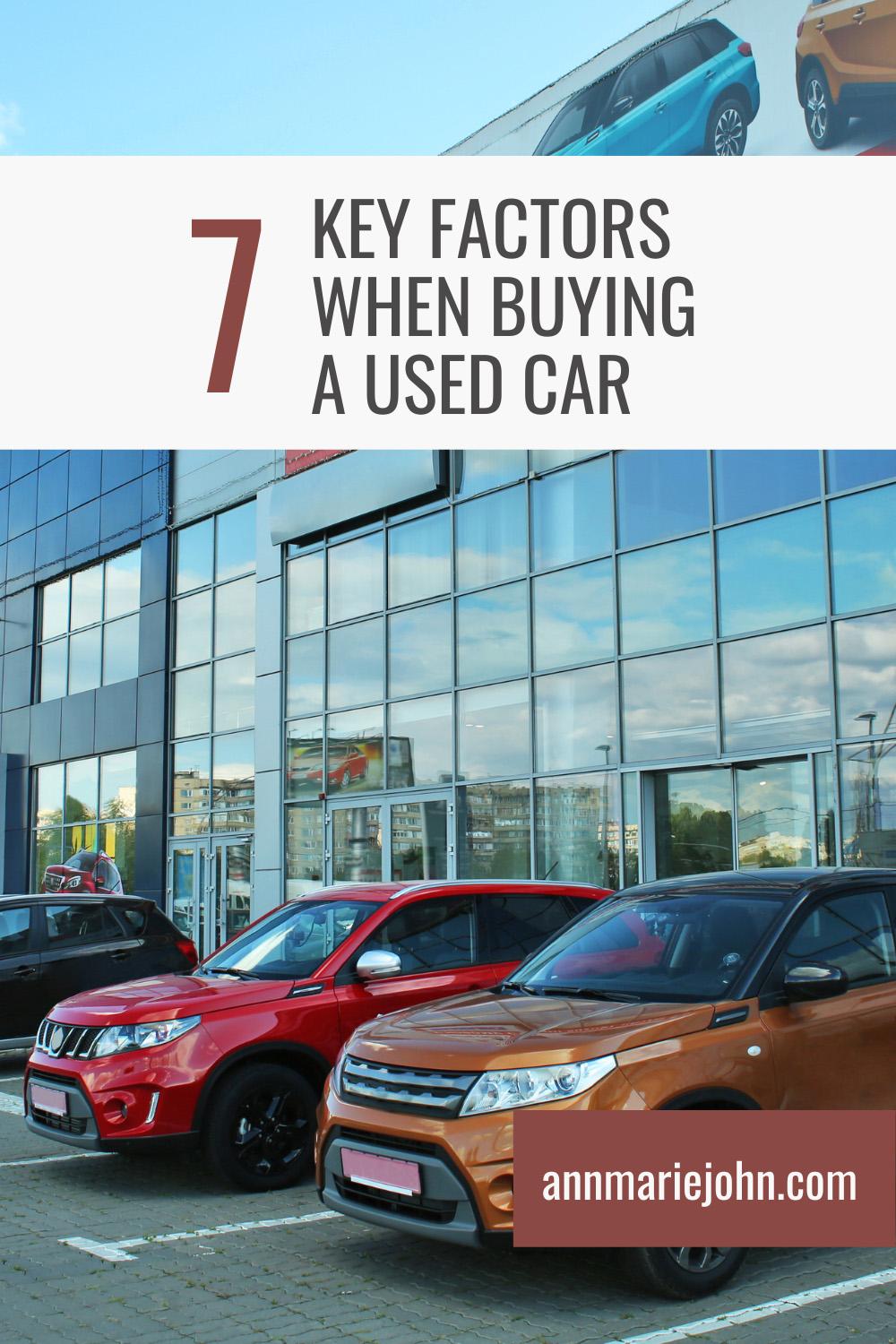Buying a car is a big decision. It is a significant expense that will impact your finances for years to come, so it is essential to be sure you are getting your money’s worth. If you are among the thousands of families feeling the crunch of the global economic crisis, you may prefer a second-hand car to a brand-new one.

In practice, however, purchasing a used car differs from purchasing a new one. When someone buys a new car, they needn’t worry about the car giving them trouble on the road. However, when buying a used car, you need to conduct thorough research. You must compare different makes and models and identify a trustworthy dealer.
To help you know how to buy a used car, here is a list of seven key factors to consider before buying a used car. Take a look –

1. Budget
Before you start your research for a used car, define a budget. There will be many options, and starting without a budget in mind can confuse you. Think about how much you can comfortably spend and check your options within that range. Remember to keep some amount aside for add-ons, road taxes, and peripheral expenses. If you like something that doesn’t fit your budget, you can get a second-hand car loan.
2. Lifestyle
Whenever you make a big purchase, such as a house or a car, it is essential not to lose sight of practicality. Choosing a fancy car within your budget may be tempting, but it’s better to stop and think about its utility. When looking for a family car, you need a vehicle that can seat everyone comfortably. If you travel a lot, you may need a vehicle with good mileage. Think about the purpose of buying a car and choose a model that offers the best practical solution.
3. Vehicle History
A vital part of your research while purchasing a used car is finding out the vehicle’s history. Even if the exterior and interiors look great, find out how the car has performed. Look for details about accidents, damage, or significant repairs in the last few years. It will help you understand how well the vehicle can function in the future. You can also get a comprehensive vehicle history report from a reliable website.
A used car should always come with maintenance records from the previous owner or dealer. Ask for these records before going ahead with paperwork since they will tell you about regular servicing and repairs done on the vehicle in the past few years. Additionally, see if there are any warranties or guarantees offered by the dealer.
4. The Reputation of the Car
Check user reviews and car ratings on the internet to understand the brand’s reputation and the make of the car you are buying. If you are not experienced with buying used cars, it is best to stick with a brand that has a good reputation. It is also better to buy from a reputed dealership rather than a private seller. Dealerships usually work hard to give their customers an excellent experience to retain them.
5. Pre-Purchase Inspection
An essential step in buying a used car is to book a pre-purchase inspection. For a used-car check, a professional will use a detailed checklist to make sure that all of the car’s parts work well and that nothing is broken or missing. They scrutinize the car to ensure that you don’t have any unpleasant surprises after you buy it.
6. Test Drive
It may seem like an obvious thing to do, but it still deserves to be said. Buyers should always take a test drive in the vehicle they intend to purchase. This is not only to find out how it feels to drive but also to detect any signs of mechanical trouble. Take your time while driving and pay attention to details such as engine noise, brake response, and gear shifts. Keep an eye on little details like blind spots, the responsiveness of the brake and accelerator, and how intuitive it feels to drive the car. An expert can accompany you on the test drive if you want extra assurance. Getting behind the wheel gives you an idea of the safety, comfort, and convenience of driving a car.
7. Insurance and Warranty
Proof of insurance is mandatory before you buy a used car. Some insurance companies will let you keep the insurance you already have on your new car. But in all cases, you must look into insurance and arrange for it before you buy the car.
Look for the label “Certified Used Car,” meaning the car is still covered by the manufacturer’s warranty. It is always better to buy a vehicle that is still under warranty. Some cars may be covered by a warranty from a third party, or you may be able to buy an extension for the warranty. In any case, get clarity about the warranty status of the car you want to purchase.
In Conclusion
It is always important to haggle when buying a used car. The dealer or previous owner may have set a higher price, but you can negotiate to get the best deal. Compare the prices of cars with similar models and features online and try to bring them down further. If you can, try to negotiate for extra features or services that usually aren’t part of the price of the car.
It may seem like buying a used car is a bigger hassle than buying a new one. But if you do it right, you may get better value for your money in a used car. Follow the tips listed above and research well; you will find a good car that fits your needs and budget.
